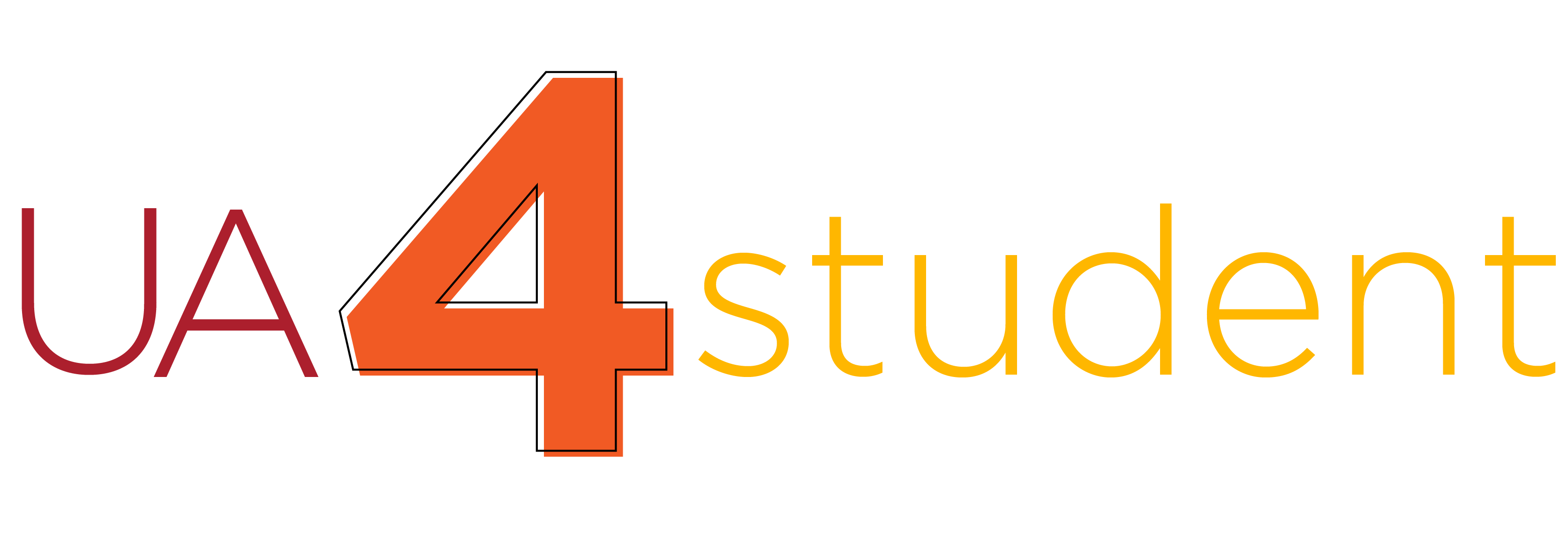
On a hot Sunday afternoon in June, 102 high school students walk into a classroom. They sit nervously next to each other waiting and chatting quietly. College students stand in the front of the room in brightly colored t-shirts laughing, holding the attention of the high school students who sit before them. Scrawled across the white board in the front of the room is “ACT Academy Kick-Off 2017.”
In walks a woman with a large black bag. With a loud voice, Sarah Draine opens up by welcoming the high school students to the ACT Academy at the University of Arkansas.
She asks them how far they travelled from their homes, which are spread out across the state of Arkansas, to get to the U of A. She encourages them to speak up and participate. She has the college students in the front of the room introduce themselves as student mentors and give a piece of wisdom to the high school students. There is laughing and teasing and singing and the room begins to buzz with excitement.
Then, Draine reminds the students why they are here – the ACT. While there are many scores that are important for college admission and success, an ACT score can raise or lower a student’s access to opportunities in higher education.
These students come from diverse backgrounds, made up of varying economic and racial experiences. Some come from families with a history of attending college, but many are looking to be the first person in their family to pursue college. They have different backgrounds, different challenges, and different dreams.
What all of them have in common is a want to increase their chances of getting into college. Their want for college readiness brought them to a classroom in the middle of June on a college campus with five days of intensive ACT test-prep ahead of them.
The Center for Multicultural and Diversity Education hosts two sessions of the ACT Academy very summer, hoping to serve high school students from across the state and increase their college access, readiness and retention.
The ACT Academy began in 2010 with an inaugural class of 54 scholars and has grown to serve as many as 250 students each summer.
The purpose of the academy is to improve student participants’ ACT scores and provide college readiness skills while exposing them to college academics and campus life.
Draine, who is the director of the College Access Initiative, said the aim of the program is “to increase the number of students who are ready to go to college and ready to be successful in college, whether that’s here at the U of A or somewhere else.”
In 2017, over 200 Arkansas high school students took part in test-taking and college readiness prep at the ACT Academy at the University of Arkansas.
During the academy students received rigorous ACT test preparation lectures throughout the week. They also had the opportunity to engage with faculty and staff and U of A students serving as mentors, participate in cultural activities, and attend lectures encouraging self-advocacy, networking, financial literacy and other matters of college planning. Students used recreation, dining and housing facilities while on campus, getting acquainted with what life would be like while pursuing a degree after high school.
High school students apply to attend early in the year, submitting a short essay expressing their interest in the program and their hopes for their college futures. First-generation and low-income rising juniors and seniors earn priority consideration.
The ACT Academy has established partnerships with key high schools in every region of the state of Arkansas. This summer, over 60 high schools from across the state – from Ashdown to Siloam Springs and Helena-West Helena to Blytheville – were represented in the student participants.
The ACT Academy is part of the university’s College Access Initiative – an academic outreach effort established by the university in 2010. The College Access Initiative, through the Center for Multicultural and Diversity Education, provides ACT training and counseling, academic enrichment, and assistance with admissions and financial aid processes, which are all designed to improve college readiness and college access to Arkansas students, especially underrepresented populations.
Draine said students from these communities in the state need help gaining the awareness of opportunities for higher education and a substantial support system to make it to graduation.
“Through the ACT Academy we’re building the awareness, the knowledge, and letting them know that we are a resource to them in their pursuit of higher education,” Draine said. “We want to help them build this bridge from their high school and their community to their own college experience.”

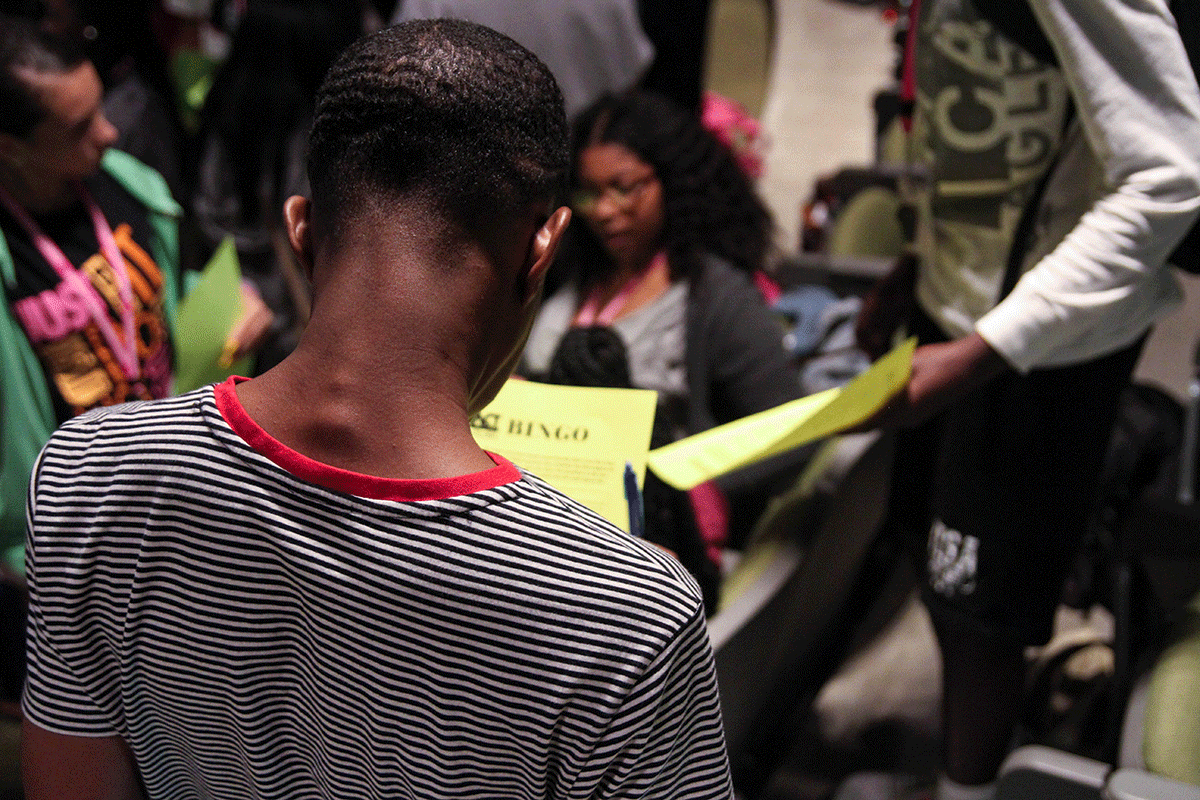
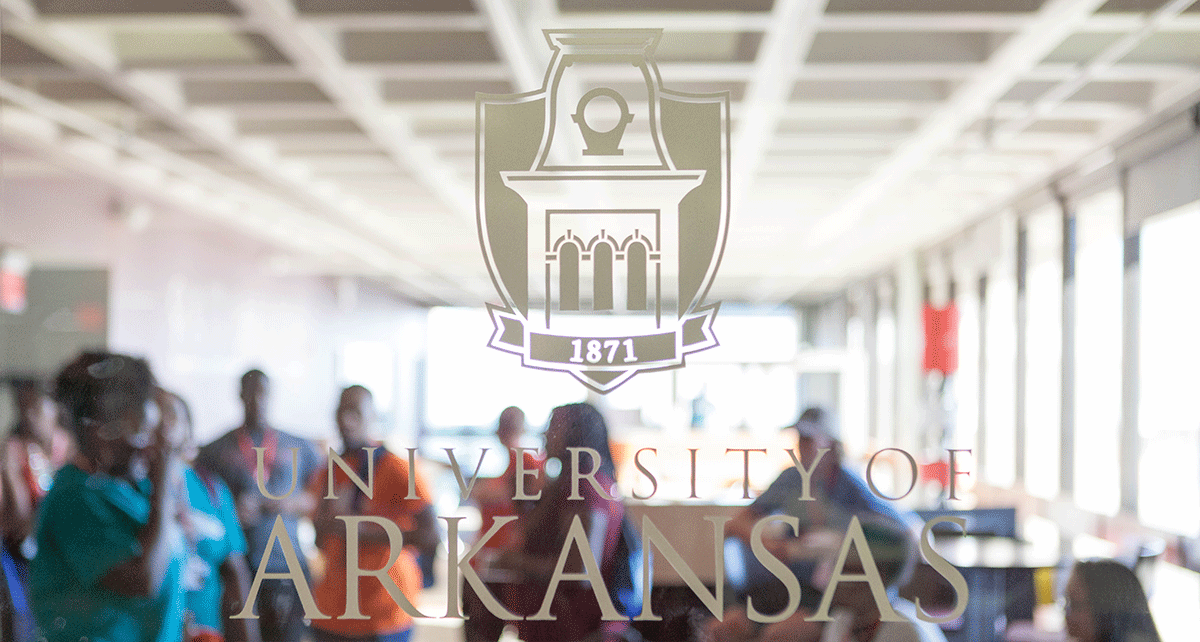
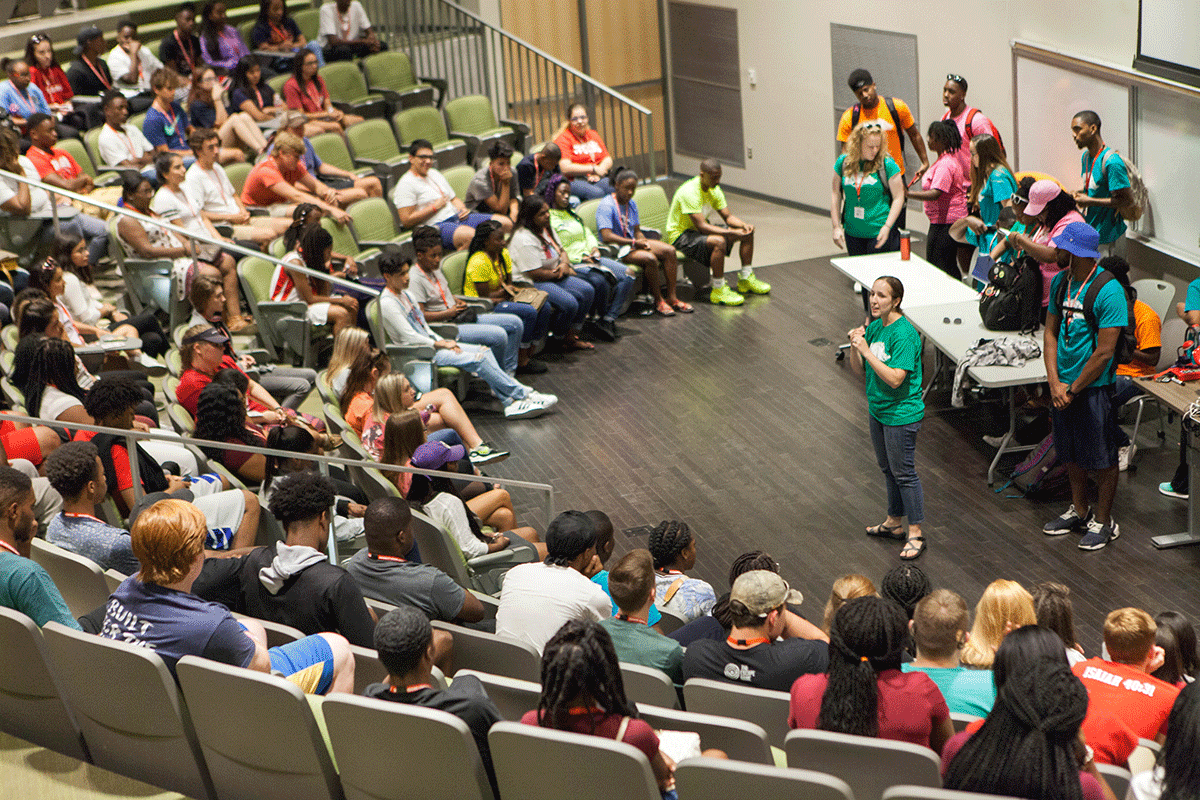
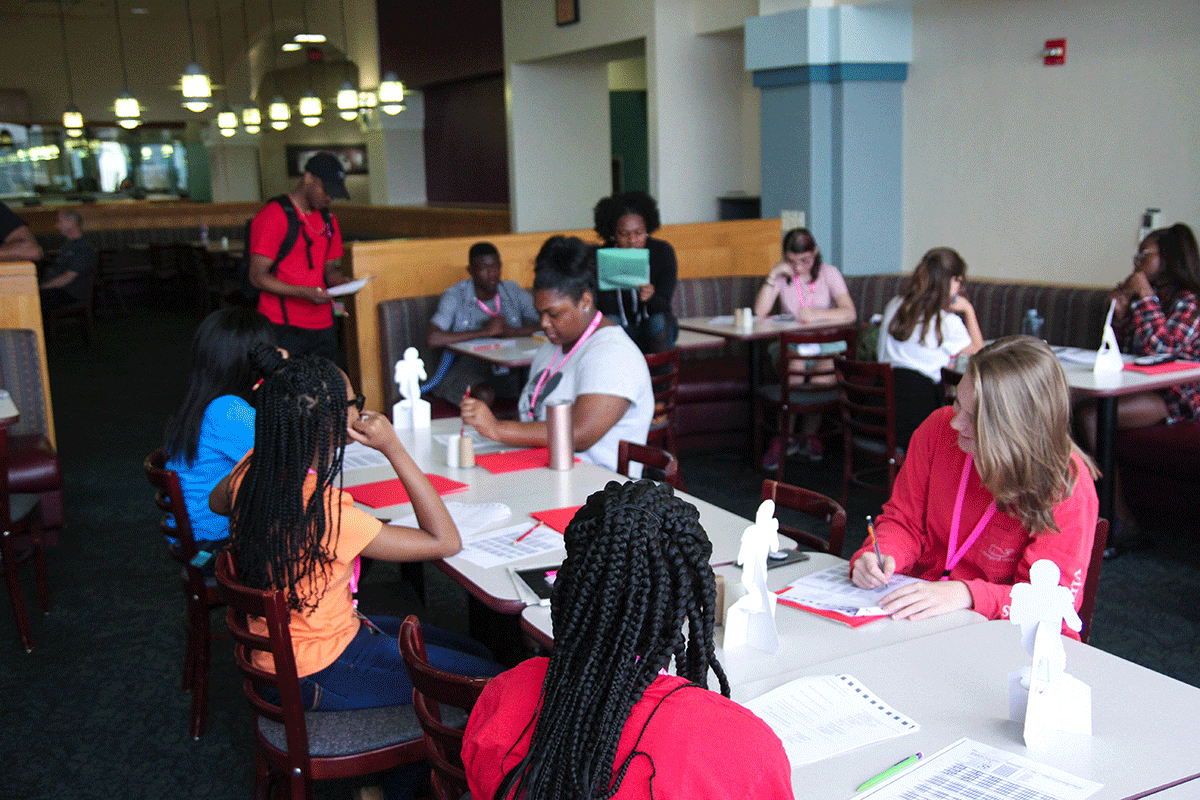
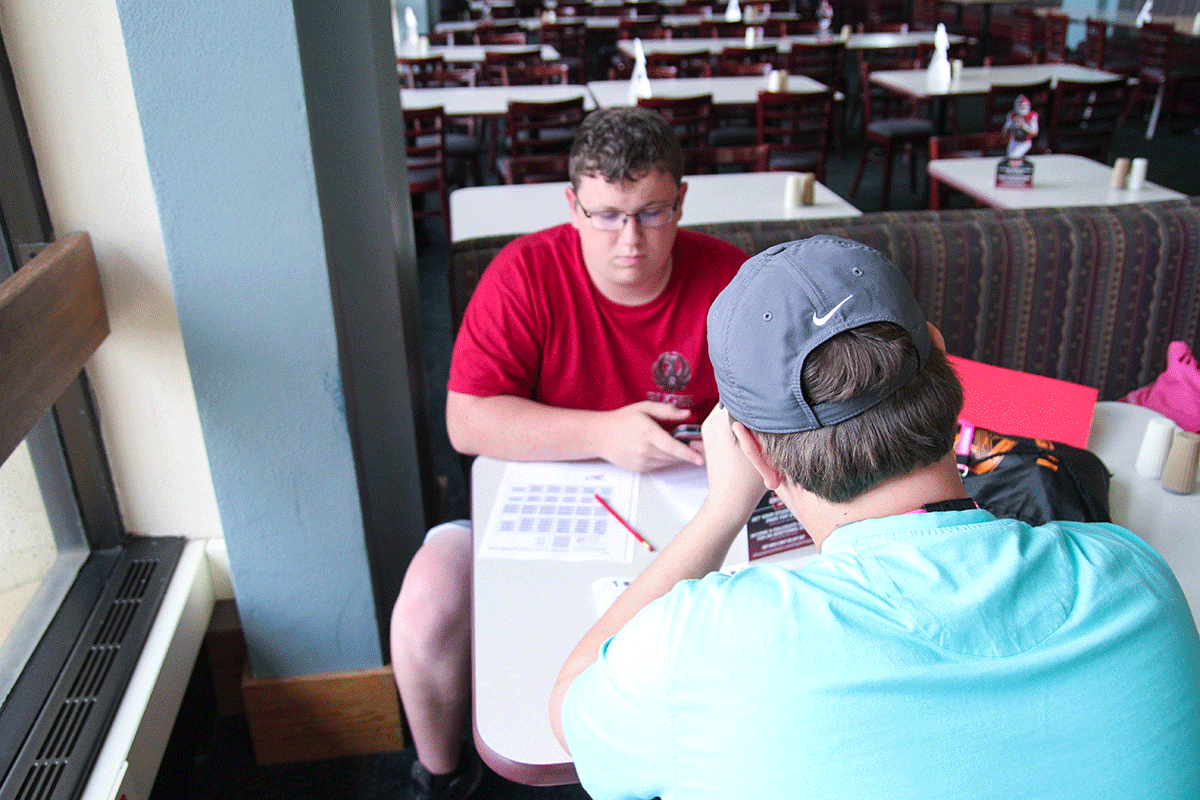
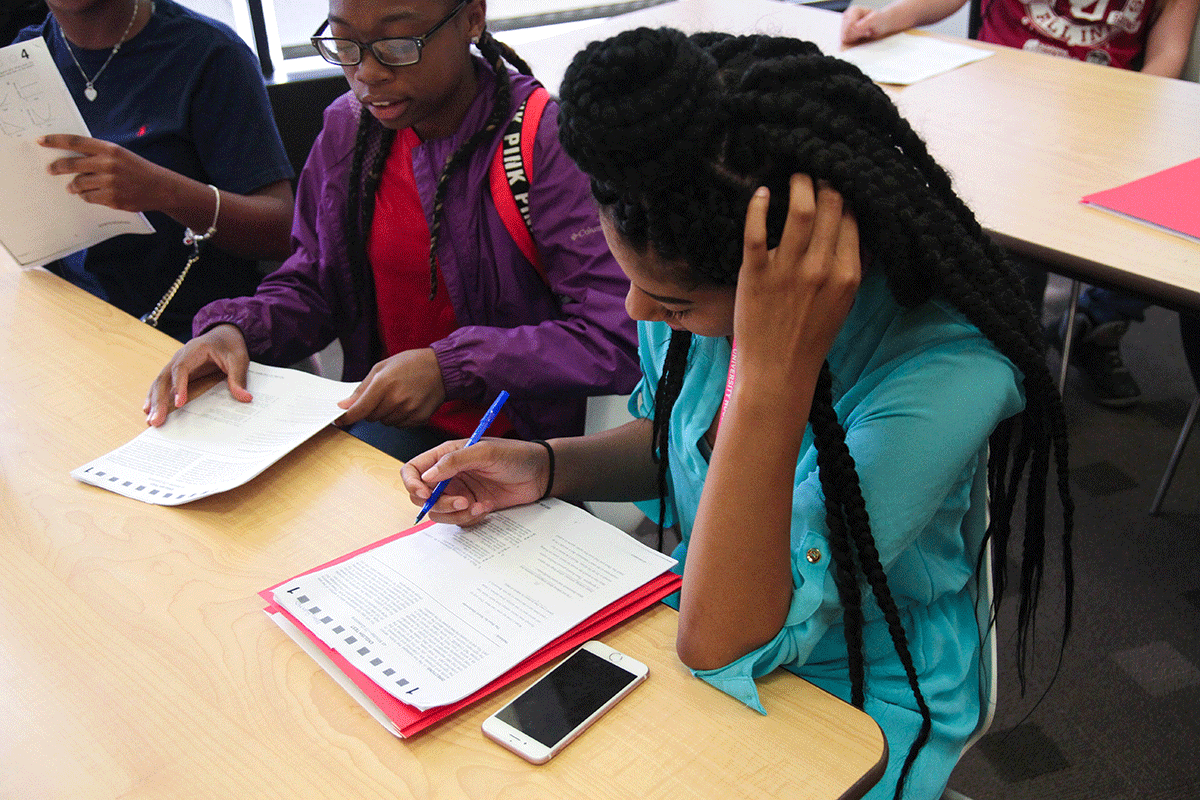
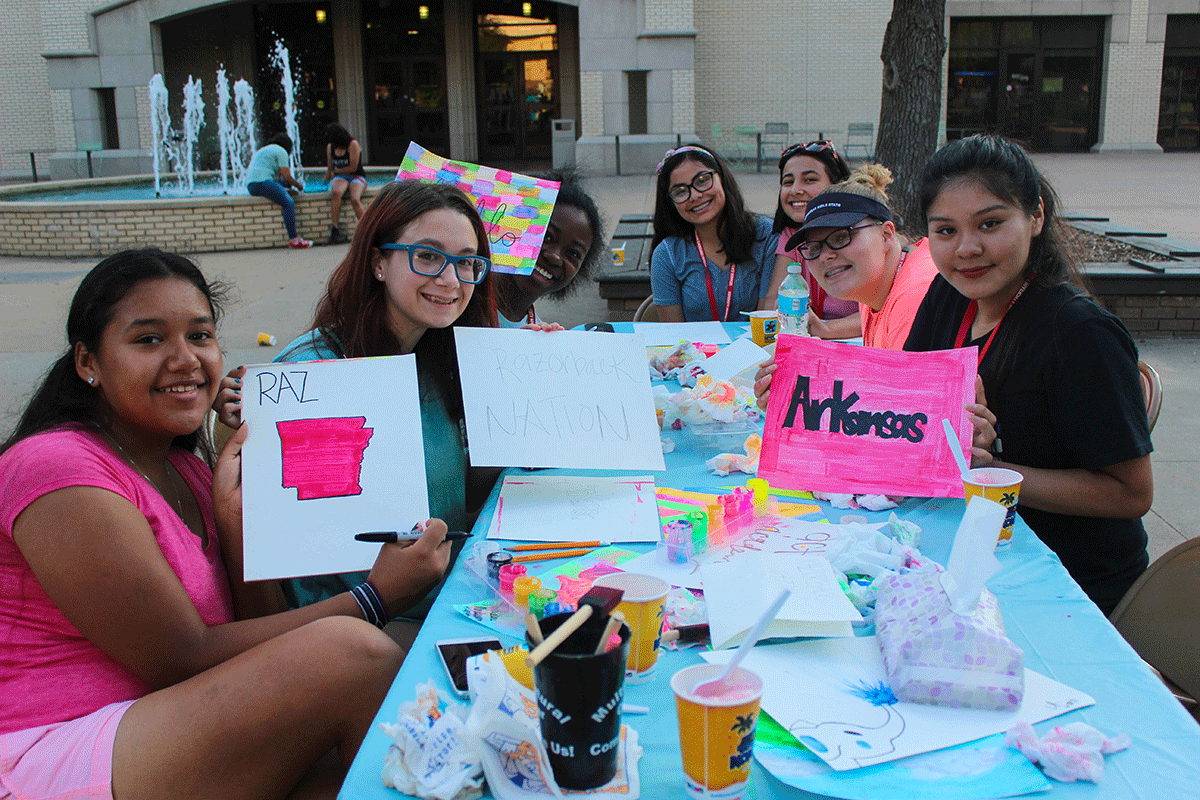
On the first day of lectures, students take a full ACT practice test to assess their current abilities and see where there is room for growth.
After group lectures, student break into smaller groups to refresh and overview the material just presented. They also take practice tests during this time, and typically Draine said there is some improvement in these scores from the scores they received at the beginning of the week. While these scores are artificial, these increases some a boost in confidence from the students.
“The scores they received during the academy are not ‘real’ scores, but we have heard that students feel more confident in their test taking abilities after taking the practice tests,” Draine said. “And that’s the whole point of the program – to increase confidence in their ability to sit down and score higher on this test.”
Students learn tactics like “read it as it is” for the English section and “read words, charts, graphs, and questions” for science. The emphasis is put on achieving accuracy but not necessarily speed.
“If students leave with nothing else we want them to know the ACT is really about accuracy over speed. You only earn points for correct answers, and so if you can slow yourself down and take the time to get as many answers correct as you can, then you’re looking at a higher score.”
While the ACT score might be one of the most important scores for college admission, some colleges are moving away using this number as a significant factor in admission decisions. An ACT score can unlock scholarship and merit opportunities for students though, even if their admission is not affected by their score. Certainly, a student’s grades and other achievements may bring more weight in the admissions process, but test scores are still critical to a student’s college opportunities past the admissions process.

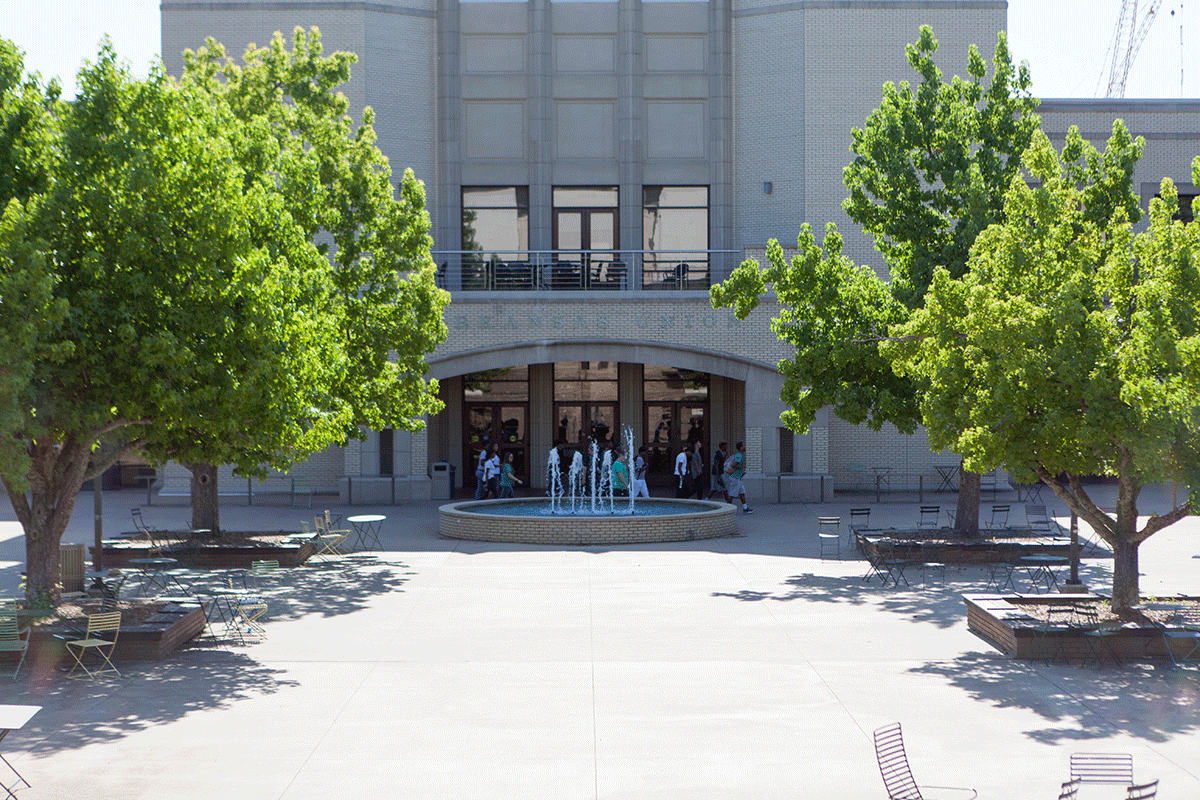

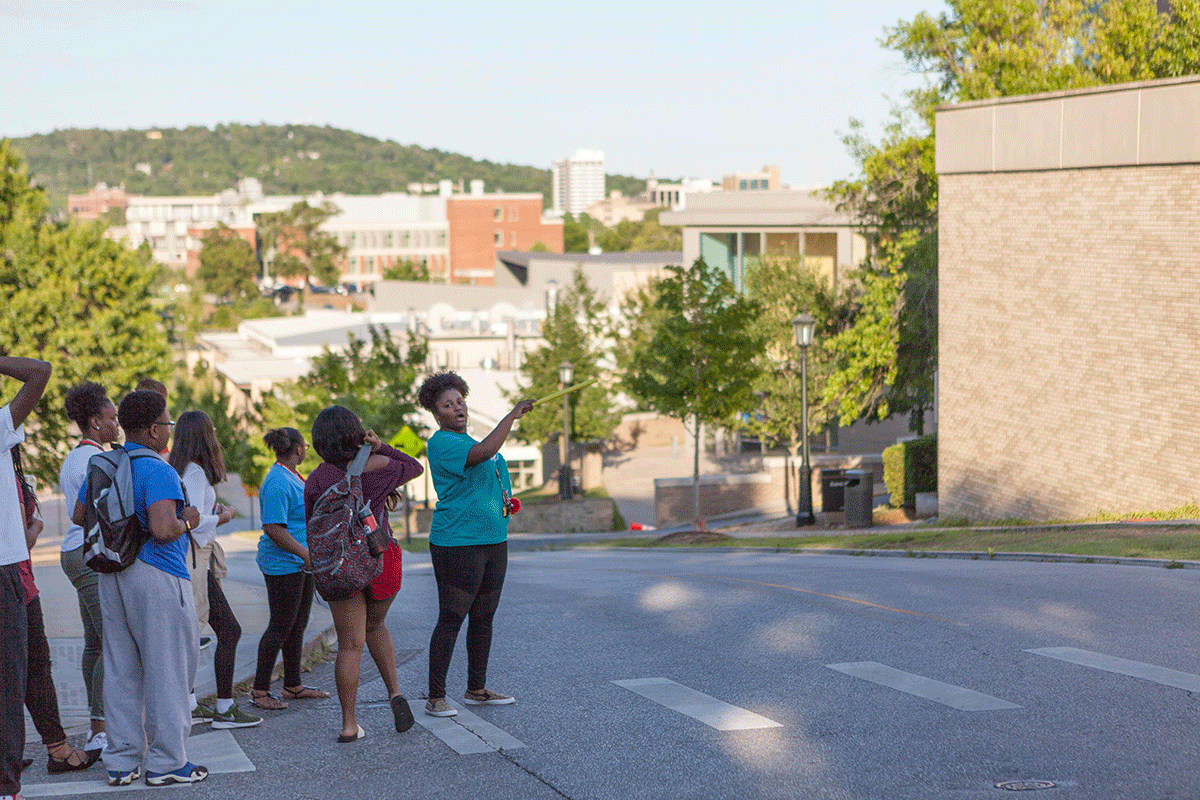
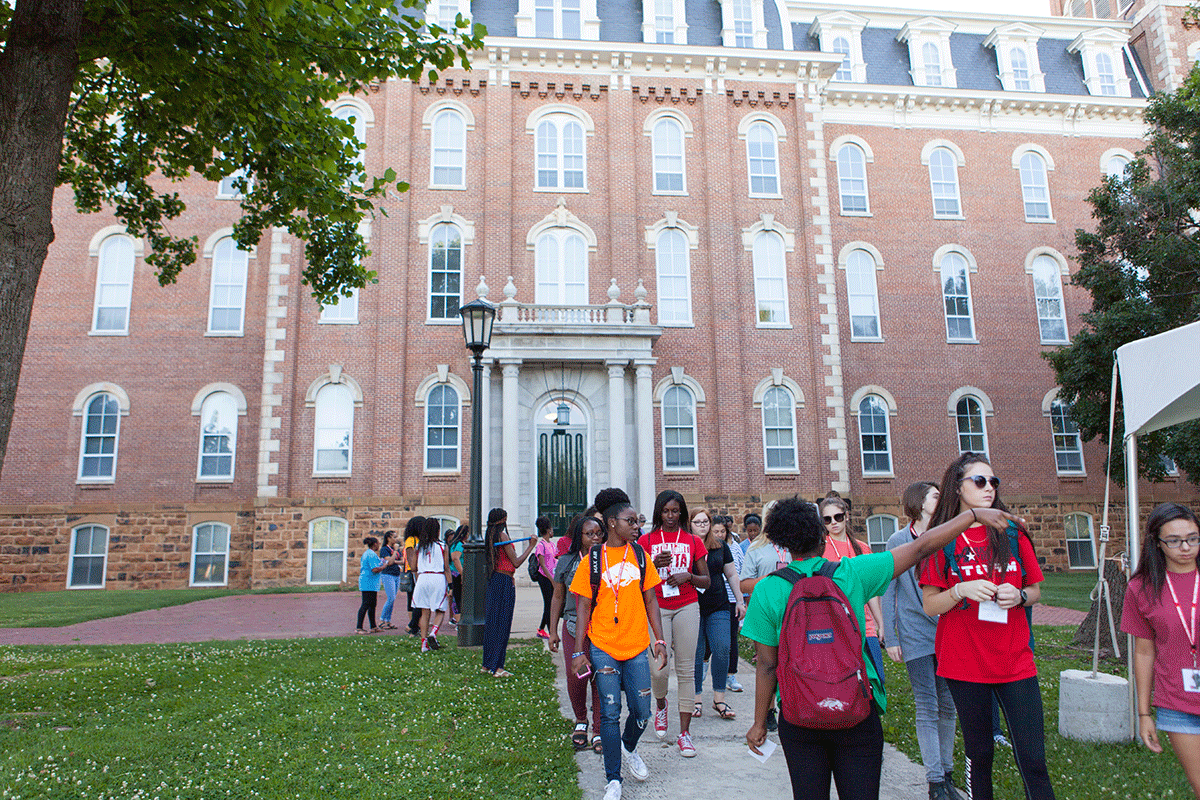
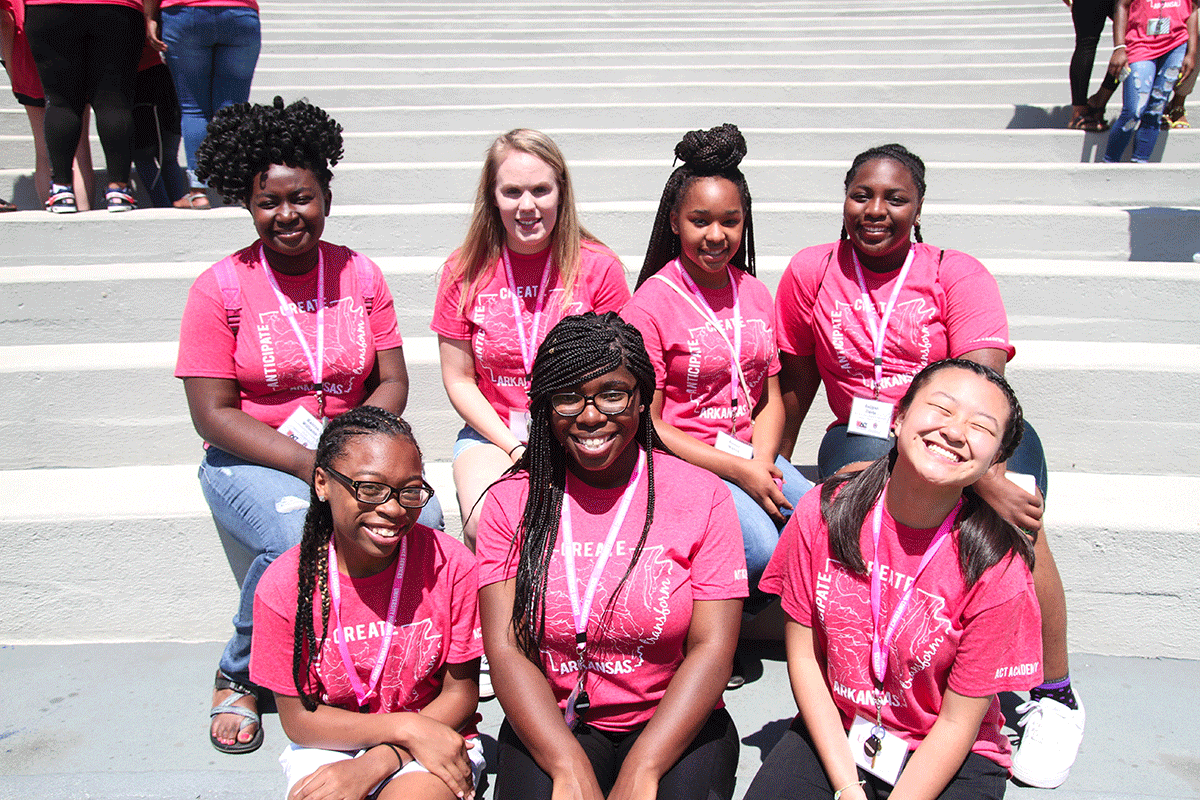
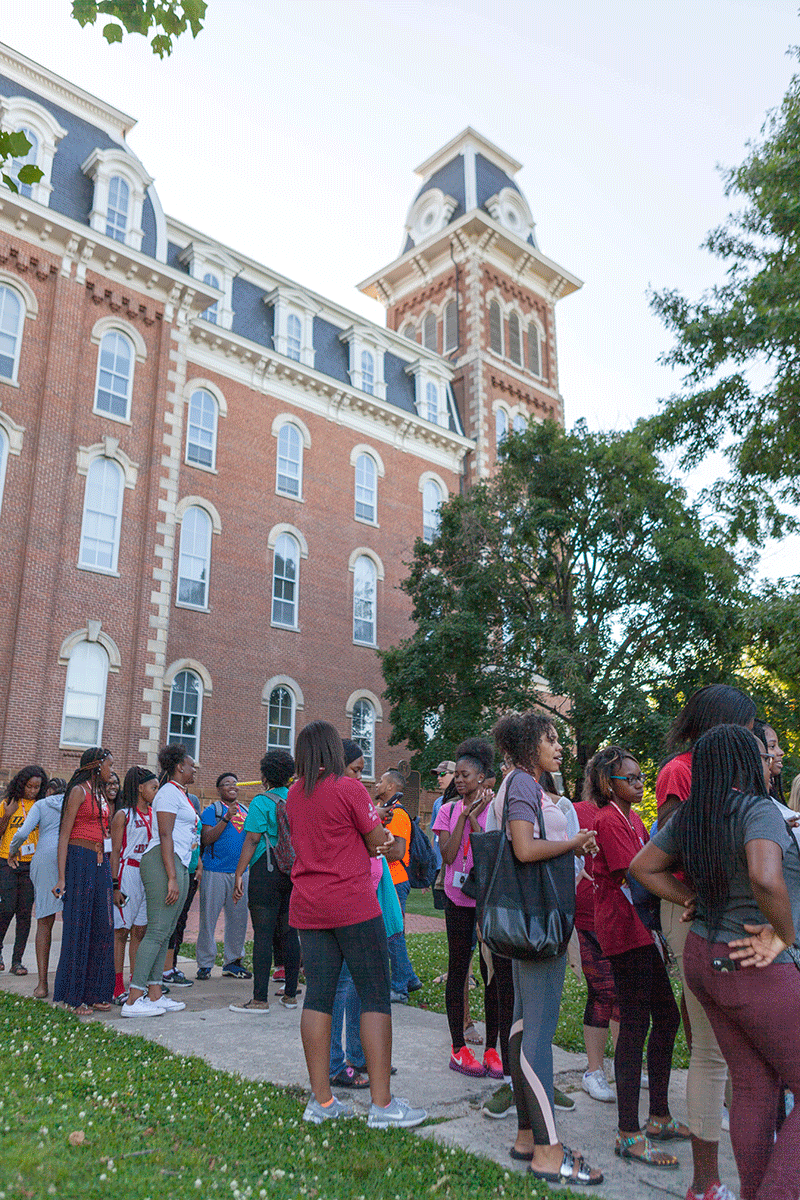
The U of A student leaders who mentor the high school students during their time on campus work to connect with them on a personal level and build their social confidence.
Crystal Hall, a senior public health major, attended the ACT Academy when she was a high-schooler with plans on pursuing higher education.
“Coming to the campus is what really made me want to come to the U of A. After staying here about a week, walking around campus, meeting people in the multicultural center,” Hall said. “Working with the mentors and hearing their experience and guidance also really influenced me to want to come here.”
Student mentor Kaylin Oliver, a senior political science major, said a lot of the students just need to gain confidence in the test-taking process.
“The ACT isn’t really about school academic – it’s about how well you know how to determine something in a certain amount of time and using different strategies,” Oliver said. “And that’s difficult for a lot of people. Students coming here might have a high or low GPA and a high or low ACT score, but they can always improve their score and test-taking skills be learning some simple strategies. We just want to help them gain confidence in themselves and leaving here knowing they can do better.”
Oliver said one of the great things about the academy is the diversity of the students. The high school students get to interact with other students they wouldn’t have been able to meet, and they can learn from each other’s differences.
“My mentees, they come from many different parts of Arkansas. So for the most part it is diverse, not even just with demographics but also with ACT score. You have people in there that haven’t taken the ACT test or have not sent a score and then you have people who have taken the test before. During one session, there was a student who had a 35 who was just trying to increase their score one point versus people who made much lower scores overall. They are diverse in race and gender and demographics and even test score.”
Hall said it is important for the student mentors to show who they really are to the students and connect with them outside of the classroom, specifically during family time.
“It’s a time for them to get to know each other and for me to get to know them,” Hall said. “I want to break the ice. Also it’s a way for them to have somebody to talk to and just letting them know I’m there if they need to talk or if they have concerns about anything. If it’s about personal life, if its about school, just let them know I’m here to help you.”
Seeing the change in the students is one of Keyanna Foreman’s, a junior nursing major and student mentor, favorite parts of the week.
“Students really gain confidence throughout the program. In the beginning, they might introduce themselves and you can’t even hear them, but by the end of the week they’re laughing and talking with us, and we have to get onto them about talking too much. They really gain confidence, not only academically but socially as well.”
When the students are not in class, Draine and the mentors keep them busy. In the evenings, students take part in an activity night, choosing from playing in the tech center, playing games, or getting active; a lawn night with snow cones and music; and ACT Up, where students get into their mentor family groups and present a message through song, dance, or acting to the group.
Student mentor Enrique Salamanca, a senior psychology major, said the time students are able to spend with each other and with the mentors is important for personal development.
“It’s definitely about the ACT and raising their scores, but it’s also about getting people comfortable in themselves and growing as a person. And that’s why I think it’s amazing that the multicultural center is the one that holds it because that’s what they’re all about – diversity and inclusion.”
Salamanca and Foreman both said even though they are supposed to be teaching the students, they themselves end up learning a lot from their students.
“I feel like the students taught me a little more than I taught them. We want to give back, but they really give us so much more,” Salamanca said. “They’ve taught me confidence in myself and I know a lot of us feel the same way. We start off a little less confident, and then we grow even more because we get more confidence from each other and the mentees. And we grow really close to them and build connection with them that you don’t necessarily anticipate or expect.”
“The mentees more definitely reminded me that you can be completely different from somebody on the outside, but you could experience the same kind of things,” Foreman said. “Specifically for us we have a lot of girls that look completely different from each other and come from completely different places, but if we were to play a game or share experiences they are all involved in school in the same ways. It just really reminds you that you can be different and still relate to somebody.”


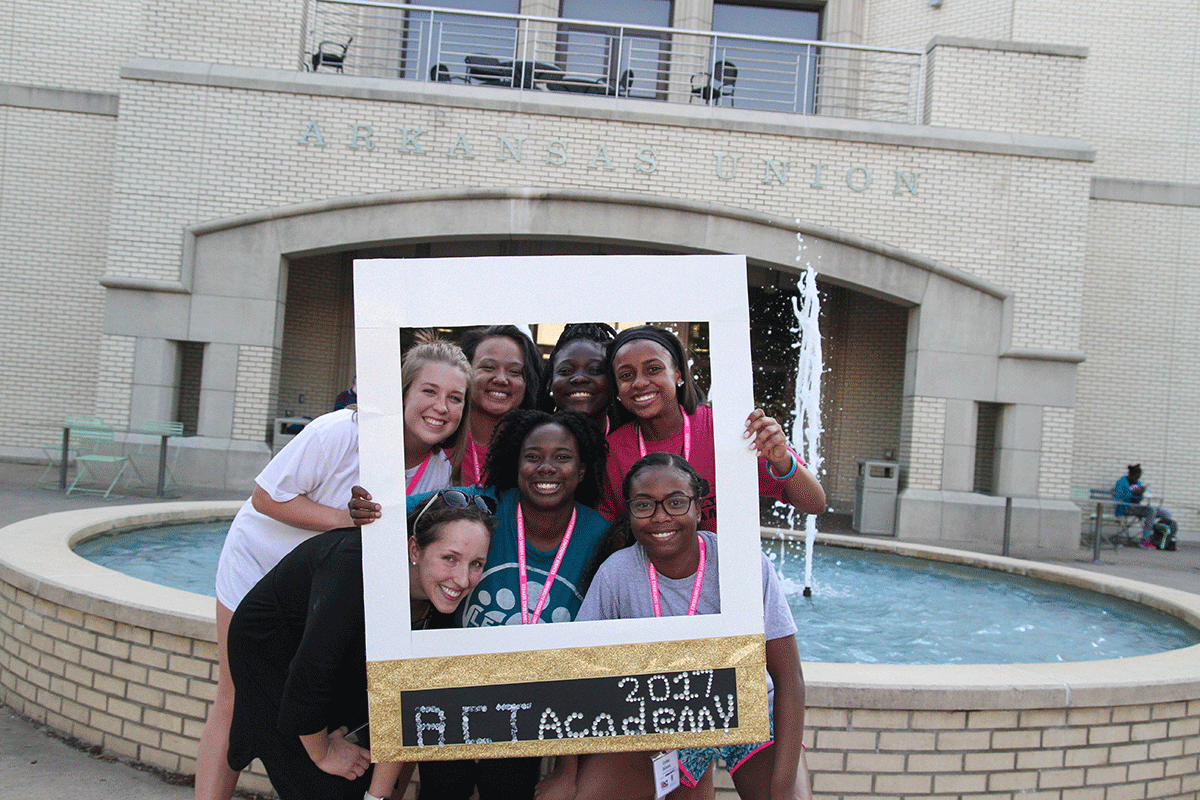
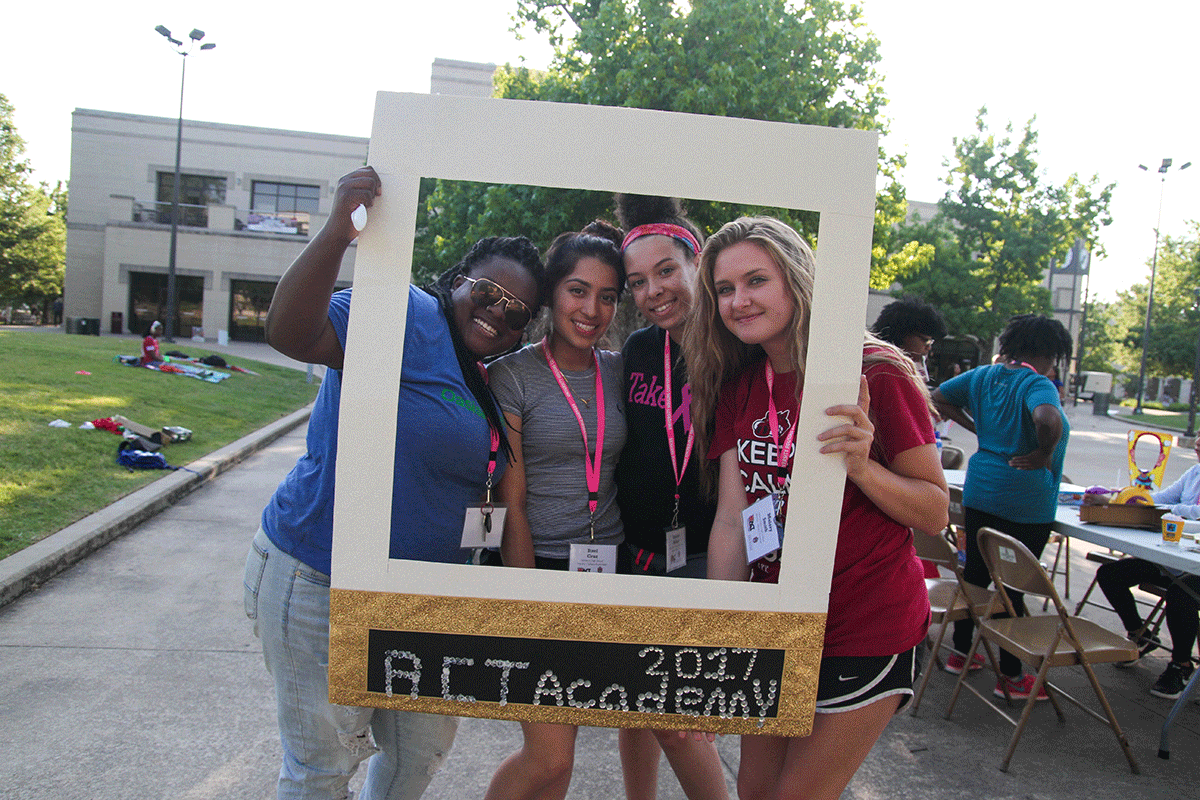
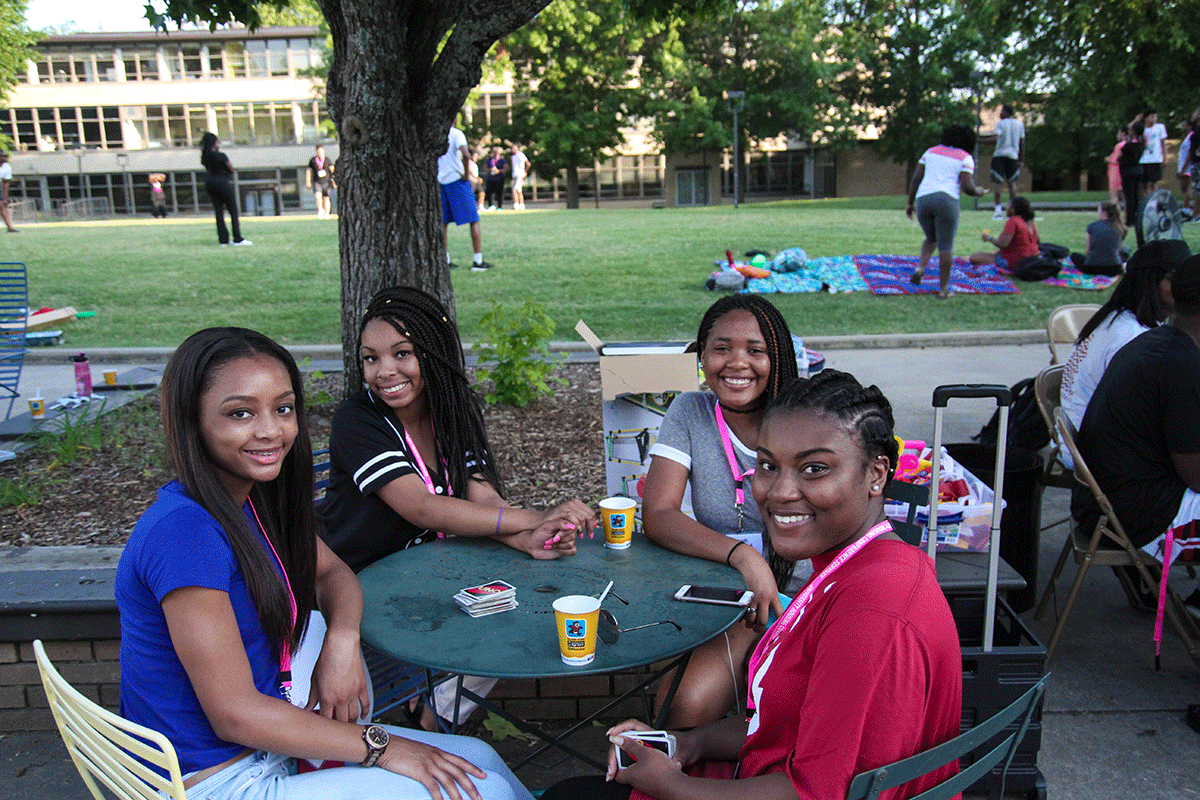
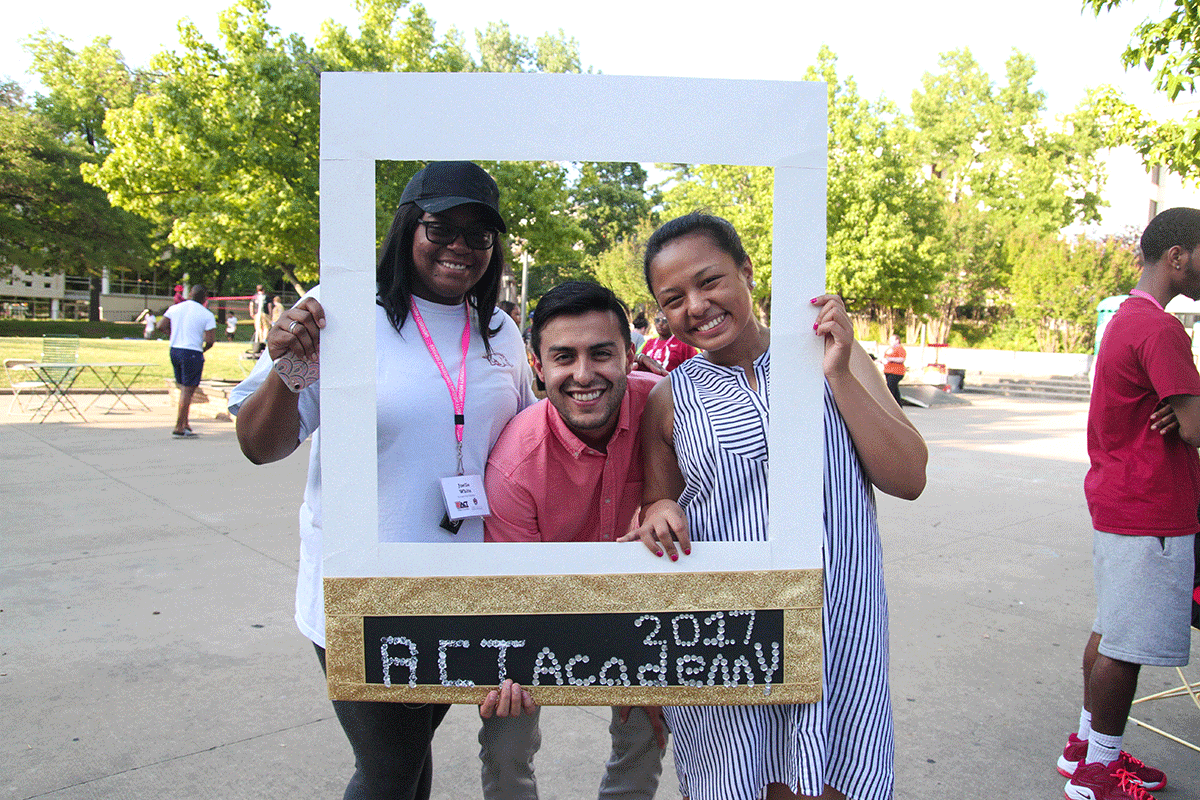
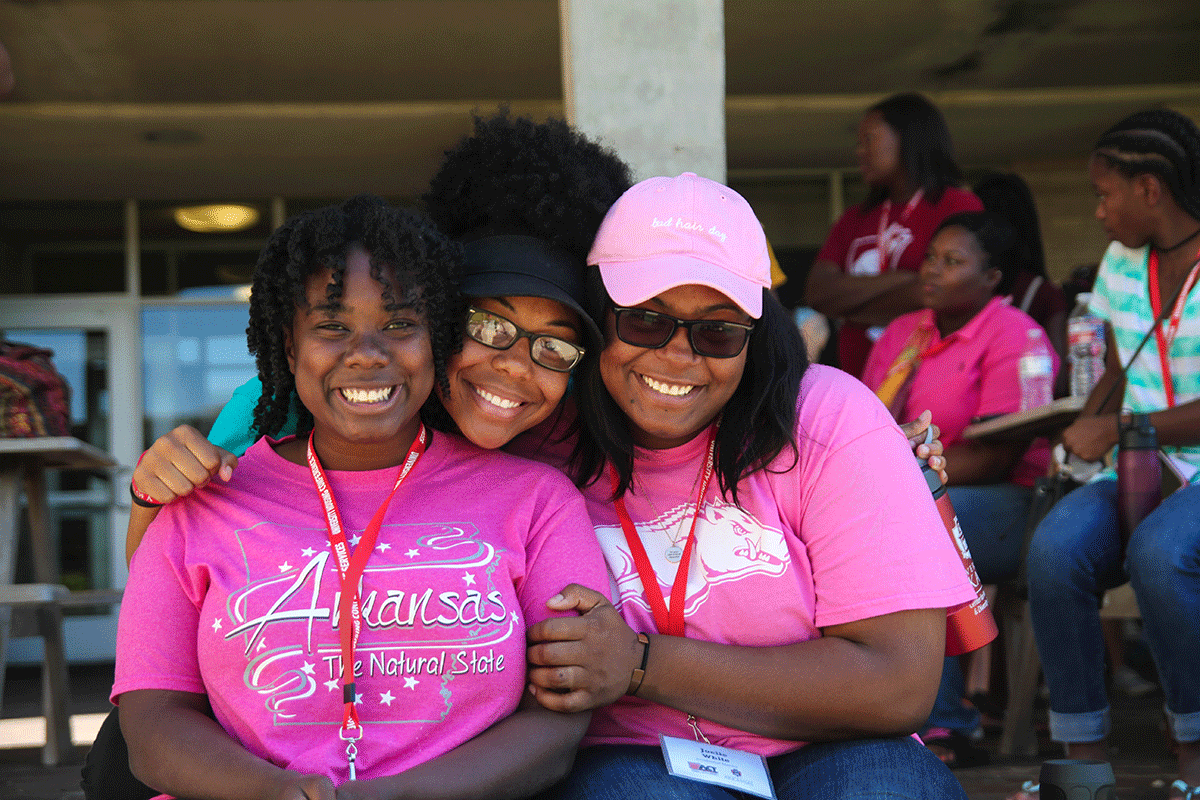
On the first day of the ACT Academy Draine does not hold back in telling the students just how important the next five days are for them.
“You are students who show a lot of promise, and we know that even applying to attend here and then getting yourself up, packed and ready, our forms turned in, getting yourself here today shows a level of commitment and seriousness that is really exceptional,” Draine said. “That’s why we’re excited to get to work with you.”
She hopes the students will gain some test-taking skills to improve their ACT score, but also hopes they leave with a clearer vision of themselves at an institution of higher learning.
“You’re here to improve your ACT scores, you’re here to open doors of opportunity with those improved ACT scores, and you’re very likely here to change the trajectory, not only of your own future, but that of your family,” Draine tells students.
For Draine, the academy is all about providing a ripple effect in the lives of these high school students, their communities, and ultimately the state of Arkansas through their pursuit of and graduation from college.
“All of us are here to, yes, help these students improve their ACT scores, to help them open a door of opportunity for their future that’s not that far away. We’re here to help change the trajectory of their lives, their family’s lives. We’re here to impact communities and impact the state of Arkansas by increasing college readiness. These students hopefully leave here understanding that college is accessible and possible for them, and hopefully they spread that with others in their communities. You can measure impact by numbers, but we also know that our impact is making a ripple in those communities. That’s what we do all year round, and it happens to be in the form of two weeks of ACT Academy during the summer.”
Want to support the ACT Academy?
Learn more about how your generous gifts can help support Arkansas students through the ACT Academy. For more information about giving to the ACT Academy directly, contact Carolyn Collins at 479-575-5007 or by email at cdc008@uark.edu.
